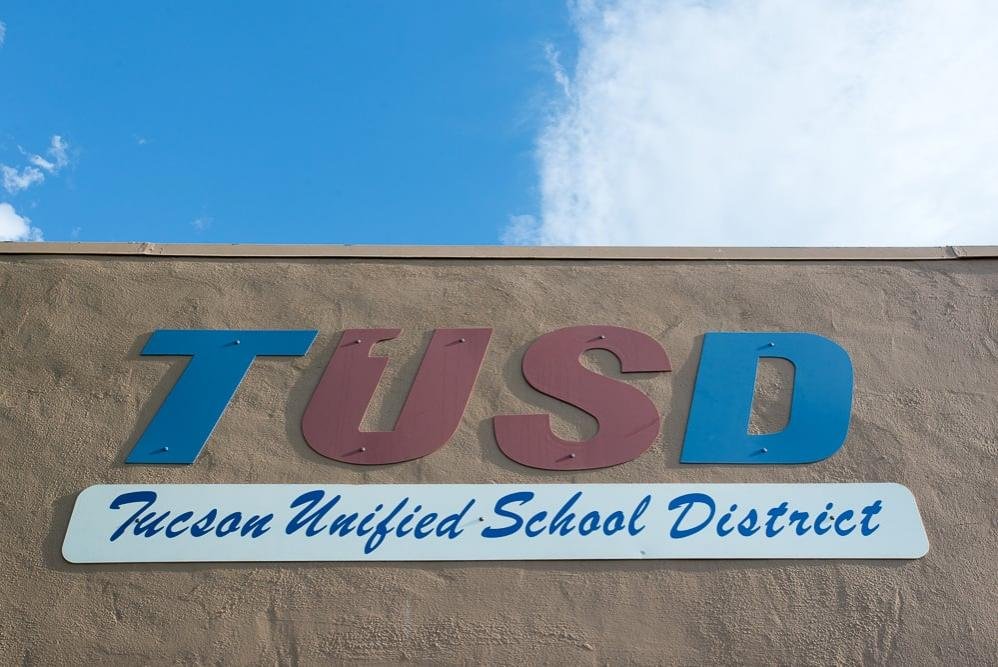border
TUSD Champions Immigrant Rights: Changes to Pronoun Policy; Sunnyside Demands ID & Warrants from Law Enforcement

Tucson-area institutions are adapting their non-discrimination practices in response to recent directives from the White House aimed at banning diversity, equity, and inclusion programs, as well as protections for transgender Americans. The El Rio Community Health and the University of Arizona are among those adjusting policies to align with the federal government.
Tucson Unified School District (TUSD) is set to address its non-discrimination policy, implementing changes to comply with existing federal laws. This includes revising language to utilize “they/them” pronouns instead of “he/his” or “she/her,” a decision described as a minor grammatical update.
Additionally, TUSD plans to add immigrants as a protected class under its non-discrimination policy, prohibiting discrimination based on immigration status. The move is backed by legal counsel who cite compliance with multiple federal laws, including Title VI and VII of the Civil Rights Act and the Americans With Disabilities Act.
Policy adjustments of this nature are not uncommon for school boards as they strive to meet evolving state and federal standards. After updating its policy 13 times over the past three decades, TUSD continues to ensure its language aligns with modern legal expectations.
In a related matter, TUSD representatives have indicated they will require identification and warrants from federal agents seeking to investigate immigrants on school premises. This policy, while not directly tied to the grammatical changes, suggests a nuanced resistance to broader federal immigration policies.
Three significant points emerge: First, the language change reflects a broader social response to federal policies on transgender issues; second, the timing of the non-discrimination update coincides with fears of impending federal mass deportations; and third, TUSD is invoking established legal frameworks in opposition to claims that executive actions can bypass existing laws.
Meanwhile, the Sunnyside Unified School District will vote on revisions to add a section mandating that peace officers provide identification and warrants before detaining students on campus. This review continues as Apollo Middle School faces serious infrastructure concerns, with reports indicating roofs across various schools may need immediate repairs or replacement.
In terms of budget, TUSD is facing a projected $3 million deficit in its desegregation budget for the upcoming fiscal year, prompting discussions on necessary reductions, particularly impacting advanced learning programs.
On the financial front, the Sahuarita Town Council is preparing to vote on the establishment of a Solid Waste Enterprise Fund with a budget of $2.1 million. This initiative marks a shift towards town-operated trash collection services, which could significantly impact local independent waste haulers.
Administrators are exploring ways to generate enough revenue through user fees to support the new waste management operations after the council had previously approved a $27 million contract with Waste Connections of Arizona.
In education, several districts are considering changes to address funding fluctuations and program requirements. For instance, Catalina Foothills Unified School District plans to revise its budget mid-year due to an unexpected increase in funding, while Amphitheater Unified School District will vote on a technology contract with HyeTech for network security, amid questions about agenda transparency.
As discussions progress, the Flowing Wells Unified School District is contemplating holding a bond election for new financial resources to address essential infrastructure needs, with estimates suggesting around $30 million might be required. Meanwhile, Marana Unified School District is set to review career and technical education strategies in light of emerging technologies.















